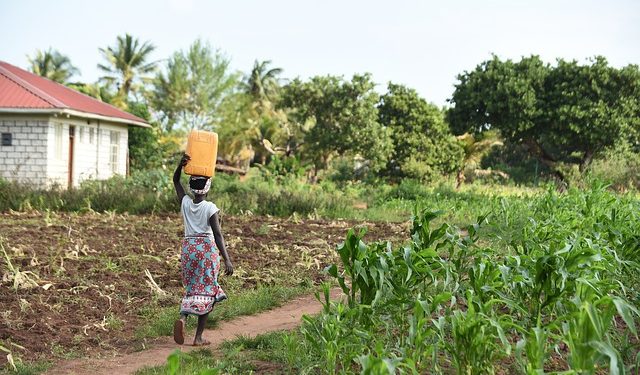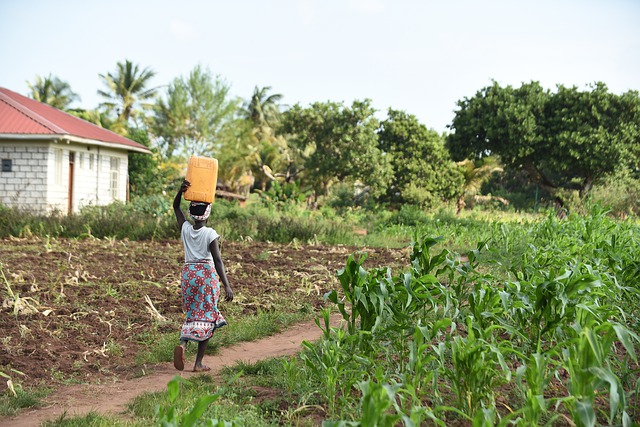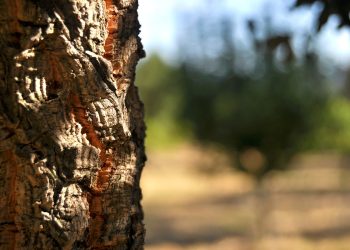Though several African countries, including Kenya, Nigeria and Ethiopia, are making tremendous strides in their quest to develop and commercialize genetically modified crops, it’s not the same story in Uganda.
Despite very promising initial successes, Ugandan scientists in the East African country have struggled to progress their GM crop research beyond confined field trials (CFTs) due to various reasons that are out their control.
For instance, scientists developing an improved GM maize variety that is drought-tolerant and insect-resistant at Uganda’s National Crops Resources Research Institute (NaCRRI) had to halt their research and destroy their results because the country still lacks a biosafety law to guide commercialization of GM crops.
“We have completed confined field trials for Bt maize, but we cannot apply for environmental release because we don’t have a law to guide usage of GMOs (genetically modified organisms) in Uganda,” said Dr. Godfrey Asea, principal investigator for the research and director of NaCRRI.
The scientists also had to destroy the seed varieties they produced. They could not keep them for longer than a year after the CFTs were completed because NaCRRI does not have long-term storage facilities for GMOs, including fridges and cold rooms.
The National Council for Science and Technology also required them to destroy the seeds after research was completed.
“It’s a real shame [the scientists] have had to stop their research and destroy their materials,” said Erostus Nsubuga, chief executive officer and chairperson of Agro-genetic Technologies, a private firm in Kampala that specializes in tissue culture and moves research work from labs to farmers by multiplying seeds. “They were doing great work.”
Asea’s research indicated that the Bt maize varieties, which use a gene from a common soil organism called Bacillus thuringiensis to repel insect pests, were resistant to both fall armyworm and stem borer insects and drought-tolerant, too. As a result, farmers who grew them could expect to harvest higher yields and reduce their pesticide and water use.
But though Uganda will now fall behind, several African countries are pushing to commercialize GM crops. They see biotechnology as one part of the solution to improve food security and end hunger for their communities.
Kenya, for instance, has progressed its research in Bt maize past confined field and national performance trials. The East African country is now on course to commercialize the higher yielding food crop next year and farmers are already clamoring for the seeds.
Results from Kenya’s national performance trials indicated Bt maize varieties produced better yields than conventional varieties, said Theophilus Mutui, managing director for the Kenya Plant Health Inspectorate Service. He noted that researchers had submitted their findings to the country’s ministry of agriculture for a decision on whether to commercialize the biotech maize.
This is after the East African country allowed its farmers to grow Bt cotton last year.
It is the same situation in Nigeria, where confined field trials of the GM insect-resistant and drought-tolerant (TELA) maize showed “outstanding results” this month.
The field trials, which are being conducted at the Institute of Agricultural Research in Nigeria, showed that the TELA maize varieties produce nine tons per hectare, which is triple the three tons per hectare realized from the country’s best-producing conventional maize variety, according to a report by the International Service for Acquisition of Agri-biotech Applications (ISAAA).
“With this high yield potential, the TELA maize variety is best suited to help bridge the gap between the maize demand and supply, which is at a six million metric tons deficit,” said the ISAAA report.
Ethiopia, meanwhile, has approved commercial cultivation of Bt cotton and field research for GM maize. Farmers in South Africa are already growing TELA maize commercially.
Nsubuga said Uganda wasn’t really progressing after “investing lots of time in these technologies” because the country’s leadership couldn’t decide whether or not to go with GMOs.
The East African country also lost its funding for the TELA maize project after it became obvious that progress in biotech crop approvals here had come to a standstill. Donors instead gave the money to other priority countries.
The Ugandan Parliament passed a biotechnology and biosafety bill to guide usage of GMOs, first in 2017 and again in 2018. But President Yoweri Museveni returned the bill to the house on both occasions.
“We addressed the issues that the president wanted addressed (in the amended 2018 bill),” said Ronnie David Mutebi, formerly vice chairperson to a parliamentary committee of Science, Technology and Innovation. “We even changed the bill’s title from the biotechnology and biosafety bill to the Genetic Engineering Regulatory Bill to accommodate genetic engineering, but the president didn’t sign it.”
Scientists in Uganda have been developing drought-tolerant and insect-resistant GM varieties for close to two decades.
Asea and others started lab work for the water efficient maize for Africa (WEMA) project in 2008 to help farmers manage the risk of drought by developing maize varieties that yield up to 35 percent more grain under moderate drought conditions than currently available varieties.
Thereafter, the scientists proceeded to develop varieties that offer both drought tolerance and insect resistance, known by the brand name TELA.
Ugandan scientists in Uganda also developed other GM varieties, including cassava resistant to brown streak and mosaic disease, potato resistant to late blight disease and a bio-fortified banana rich in vitamin A and resistant to bacterial wilt.
All these varieties have showed tremendous results. But they are staring at a fate similar to that of Bt maize unless the country adopts a biosafety law.
“It is frustrating for scientists who have devoted almost their entire time to develop these varieties but now have to stop them,” said Nsubuga.
Dr. Geoffrey Arinaitwe, an agronomist and part of the team who started lab work to develop a GM banana in Uganda described how frustrating it is to “develop a product and know it works” but be unable to take it to the farmers because of legislative inaction.
“It is frustrating. Very frustrating,” he said. “I am now old, almost retiring. Soon, I won’t be able to continue this kind of work. But what do I have to show for all the time I have put in? All the nights I have spent in a lab? Nothing.”
“If people knew how painful it is to stay in a lab for the entire time until you are able to create banana from a cell, they would be more understanding of our disillusionment,” he said.
Asea said Ugandan researchers are hopeful the country will one day pass the law and researchers can deliver their products to the farmers.
But Nsubuga said it was not a question of if, but when, the country will pass the law.
“Uganda will pass the biotechnology law, especially after Kenya starts harvesting Bt maize,” he predicted. “Uganda will see the benefits of adopting these technologies and follow suit.
“Some people don’t think we need these technologies because Uganda is still producing a lot of food… we are still a food basket for the region,” he continued. “But things will be different once Kenya starts harvesting its Bt varieties.”

















































Discussão sobre este post